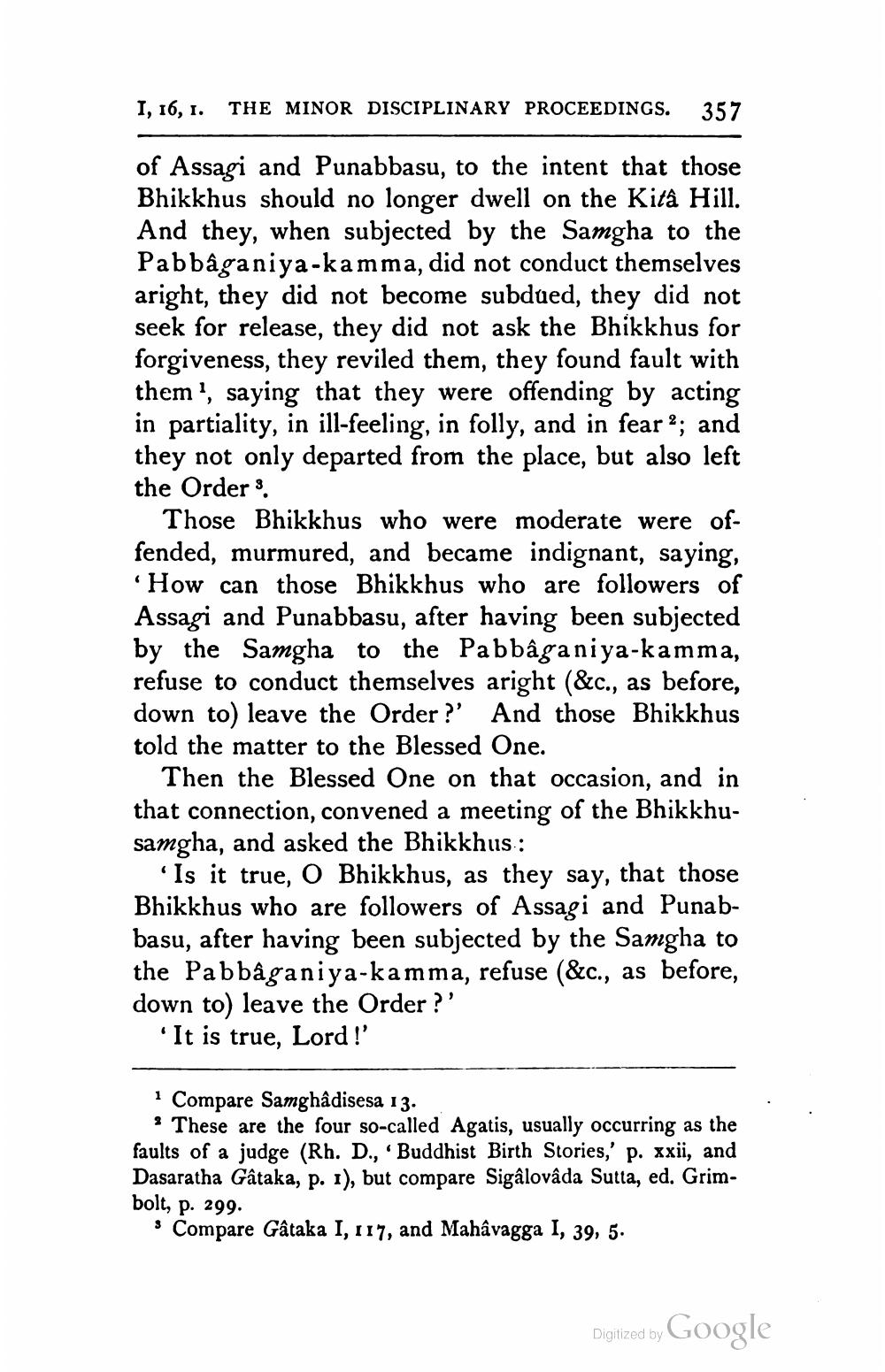________________
I, 16, 1. THE MINOR DISCIPLINARY PROCEEDINGS.
357
of Assagi and Punabbasu, to the intent that those Bhikkhus should no longer dwell on the Kità Hill. And they, when subjected by the Samgha to the Pabbâganiya-kamma, did not conduct themselves aright, they did not become subdued, they did not seek for release, they did not ask the Bhikkhus for forgiveness, they reviled them, they found fault with them', saying that they were offending by acting in partiality, in ill-feeling, in folly, and in fear?; and they not only departed from the place, but also left the Order .
Those Bhikkhus who were moderate were offended, murmured, and became indignant, saying, How can those Bhikkhus who are followers of Assagi and Punabbasu, after having been subjected by the Samgha to the Pabbâga niya-kamma, refuse to conduct themselves aright (&c., as before, down to) leave the Order ?' And those Bhikkhus told the matter to the Blessed One.
Then the Blessed One on that occasion, and in that connection, convened a meeting of the Bhikkhusamgha, and asked the Bhikkhus:
'Is it true, O Bhikkhus, as they say, that those Bhikkhus who are followers of Assagi and Punabbasu, after having been subjected by the Samgha to the Pabbâganiya-kamma, refuse (&c., as before, down to) leave the Order ?'
'It is true, Lord !'
Compare Samghâdisesa 13. * These are the four so-called Agatis, usually occurring as the faults of a judge (Rh. D., Buddhist Birth Stories,' p. xxii, and Dasaratha Gâtaka, p. 1), but compare Sigâlovâda Sutta, ed. Grimbolt, p. 299.
Compare Gâtaka I, 117, and Mahavagga I, 39, 5.
Digitized by
Digized by Google




